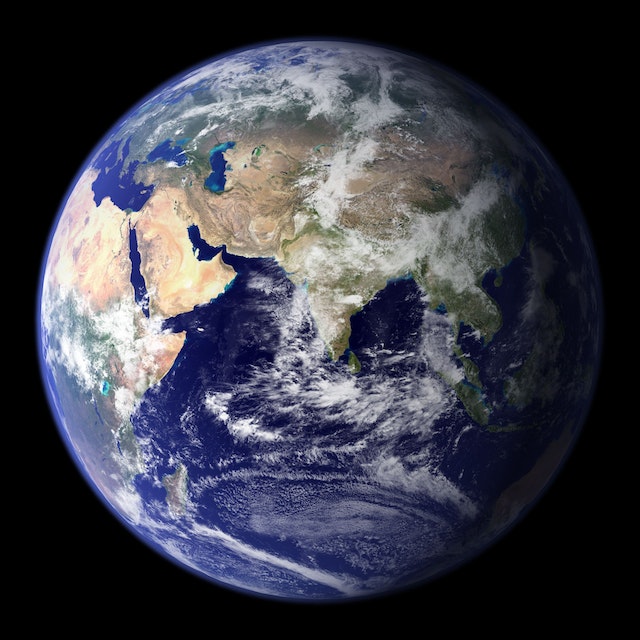
When did globalization start? Depending on your definition, either with the Silk Road, the conquest of the Americas, after the Industrial Revolution, since World War II, or when the Soviet Union ended.
The word “globalization” was coined in 1961. It was made popular in an article written for the Harvard Business Review in 1983: “Globalization of markets”. It was first defined in 1992 by Roland Robertson as “the compression of the world and the intensification of the consciousness of the world as a whole”.
Obviously, just because the word “globalization” wasn’t coined until recently, the practice can have existed for a long time. Historians peg five different eras as the beginning of globalization and there are arguments for and against all of them.
The first suggestion is the Silk Road. The Silk Road was a trading route that sprang up in about 130 BC. China had conquered enough regions that they were able to connect central China with the Mediterranean. Traders took advantage of this new route and began to trade goods. Silk, porcelain, paper, tea, glass, and many other things were traded out of China. Horses, woolen goods, grapes, spinach, spices, and many other things were traded into China. People and ideas were also traded along the Silk Road. The plague as well, on several occasions. Trade like this was unknown before the Silk Road came into being. Civilizations obviously traded with each other, but being able to get so many things from so far away was a completely new concept. However, can this trade along the Silk Road be called “global”? It was global to the people who were living there, but there were continents that hadn’t yet been discovered.
The next era put forward is Columbus’s voyage to the Americas and the following two centuries. The main European powers entered the Americas and took bits for themselves. They discovered a whole new range of foods and spices which they began to ship back to Europe. Magellan was able to circumnavigate the world and new routes to trade spices were found. In this era, all of the continents on Earth were discovered and trade was global. So, was this the start of globalization? It could be argued so, but the trade was very one-sided. Things were taken from the new world to sell in the old world and European powers tended to only trade with the colonies they owned. It was trade on a global scale, but not global trade.
The period after the Industrial Revolution is also suggested as the start of globalization. As countries industrialized one by one, they began to produce more goods and they also needed more resources. Industrialized countries could produce iron, textiles, and manufactured goods, which they could export. They needed to buy the resources to make these goods. Trade between countries increased significantly. The new factories put more money in people’s pockets and they were able to buy things that they couldn’t before. The increased demand brought down prices, which further increased demand and trade. Sugar is a good example of this. However, even though trade is increasing, it is unequal across the world. A lot of countries haven’t industrialized and wealthy countries still take advantage of poorer countries. Many countries were prevented from industrializing or developing. European countries still largely traded only with their own colonies, so we still didn’t have a truly global trade.
Many people say that the end of World War II marks the start of globalization. The European empires collapsed and trade barriers disappeared. The United States rose up as a major financial power that countries desperately wanted to trade with. Airplane technology had advanced significantly during the war and it was much easier to fly goods around the world. Trade became easier, faster, and many countries based their economies on it. Japan was able to rebuild itself by focusing on international trade. The world was almost a global economy, and yet some people say that globalization still hasn’t started because the countries behind the Iron Curtain were kept away from global trade.
The Soviet Union collapsed in 1989 and Russia and all of the other countries that had been behind the Iron Curtain were suddenly able to trade. The world was truly global and globalization was in full swing. The World Trade Organization encouraged all countries to employ free-trade and world trade grew rapidly.
Some might say that the invention of the Internet has ushered us into an era of globalization unlike any other. Products can be shipped worldwide in days, but, more than that, ideas and cultures can be transferred instantly. When Roland Robinson said, “the compression of the world and the intensification of the consciousness of the world as a whole,” he couldn’t have envisioned the effect the Internet would have.
So, when did globalization start? It is difficult to say because it was more a development of things than a single starting point. And this is what I learned today.
Sources
https://www.history.com/news/silk-road-trade-goods
https://www.investopedia.com/ask/answers/020915/when-did-globalization-start.asp
https://www.weforum.org/agenda/2019/01/how-globalization-4-0-fits-into-the-history-of-globalization/
https://www.etymonline.com/word/globalization
https://cs.mcgill.ca/~rwest/wikispeedia/wpcd/wp/g/Globalization.htm
